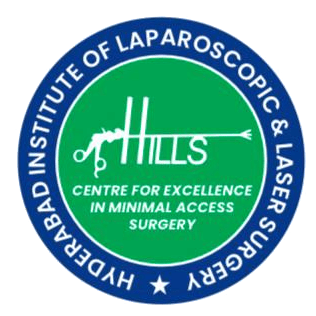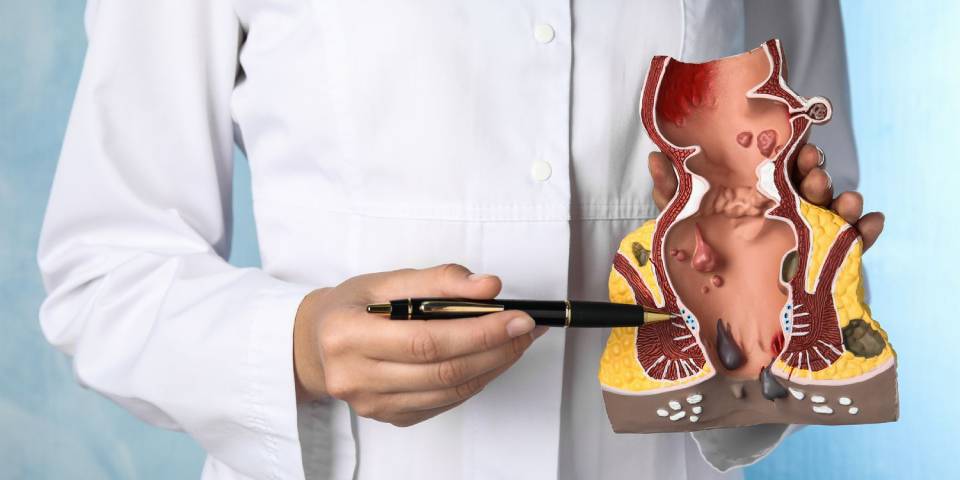Anal fissures are a common yet constantly misunderstood condition that can bring significant discomfort and pain. Despite its frequency, there are many myths surrounding anal fissures that can conduct to misconceptions and needless anxiety. In this article, Dr. N Subrahmaneswara Babu, a famed gastroenterologist in Hyderabad will debunk the top 10 myths surrounding anal fissures and deliver substantiation-based facts to support your understanding of this condition. By separating fact from fiction, we aim to empower individuals to seek proper treatment and support for anal fissures, promoting better common health and well-being.
Myth 1: You are the only one suffering from Fissure.
Fact: Anal fissures are a common condition, affecting people of all ages and backgrounds. It’s estimated that around 10% of the population will witness an anal fissure at some point in their lives. You are not alone in dealing with this issue, and there are operative treatments popular to support take and heal anal fissures
Myth 2: Fissures affect only the elderly.
Fact: While anal fissures are more common in aged grown-ups, they can occur at any time. Factors similar to constipation, diarrhea, childbearing, and certain medical conditions can boost the threat of developing an anal fissure, regardless of time.
Myth 3: Anal Fissure treatment needs surgery.
Fact: Surgery isn’t invariably necessary to treat an anal fissure. In numerous cases, conservative treatments similar to salutary changes, fiber supplements, and topical remedies can help cure the fissure and relieve symptoms. Surgery is generally considered only if conservative treatments fail.
Myth 4: Spicy foods and cold surfaces cause fissures.
Fact: Spicy foods and cold surfaces do not directly cause anal fissures. However, they can itch an existing fissure and worsen symptoms. Anal fissures are frequently the result of trauma to the anal conduit, which can be caused by passing hard or large droppings, habitual diarrhea, or childbirth.
Myth 5: Exercises must be avoided if you have Fissure.
Fact: Exercise is important for overall health and can prevent constipation, which is a usual cause of fissures. Still, emphatic exercises that increase intra-abdominal pressure, such as heavy lifting, may aggravate symptoms in some cases. It’s best to counsel with a healthcare provider before starting any new exercise routine.
Myth 6: Fissures can be cured by herbal remedies.
Fact: While some herbal remedies may give temporary relief from symptoms, there is no scientific validation to support the claim that they can cure anal fissures. It’s forever best to counsel with a healthcare provider for proper opinion and treatment. In numerous cases, conservative treatments similar to salutary changes, fiber supplements, and topical remedies are more operative in healing anal fissures.
Myth 7: There is a possibility of recurrence of anal fissure after surgery.
Fact: While recurrence is practicable, it isn’t ineluctable. Proper Post-operative care, involving salutary changes and good hygiene, can support and reduce the threat of recurrence. In some cases, further treatments may be necessary to prevent recurrence
Myth 8: Fissures are sexually transmitted diseases.
Fact: Anal fissures aren’t sexually transmitted conditions. They’re generally the result of trauma to the anal conduit, similar to passing hard or large droppings, habitual diarrhea, or childbearing. While certain sexually transmitted infections can beget symptoms that may be incorrect for an anal chink, fissures themselves aren’t caused by sexual activity.
Myth 9: Fissures are caused by poor hygiene.
Fact: While poor hygiene can contribute to the evolution of anal fissures, they’re generally caused by other factors similar to constipation, diarrhea, or childbirth. Maintaining good hygiene, involving regular washing, and avoiding harsh detergents, can support prevent fissures but may not be the sole cause.
Myth 10: Anal fissures are embarrassing conditions that should not be discussed.
Fact: Anal fissures are a common medical condition and shouldn’t cause embarrassment. Seeking early medical concentration is pivotal as it can prevent complications and ameliorate your quality of life. Open communication with a healthcare provider is crucial for proper opinion and treatment, ensuring you receive the necessary care and support.
Conclusion:
An anal fissure is a common condition that can be effectively treated with various nonsurgical techniques. Indeed if surgical intervention is demanded, numerous procedures are minimally invasive and do not involve significant cuts or injuries. Adopting a healthy lifestyle can also prevent the evolution of anal fissures. thus, if you are experiencing symptoms of anal fissures, it’s important to remain calm and book an appointment with Dr. N.S. Babu for appropriate diagnosis and best fissure treatment in Hyderabad.

